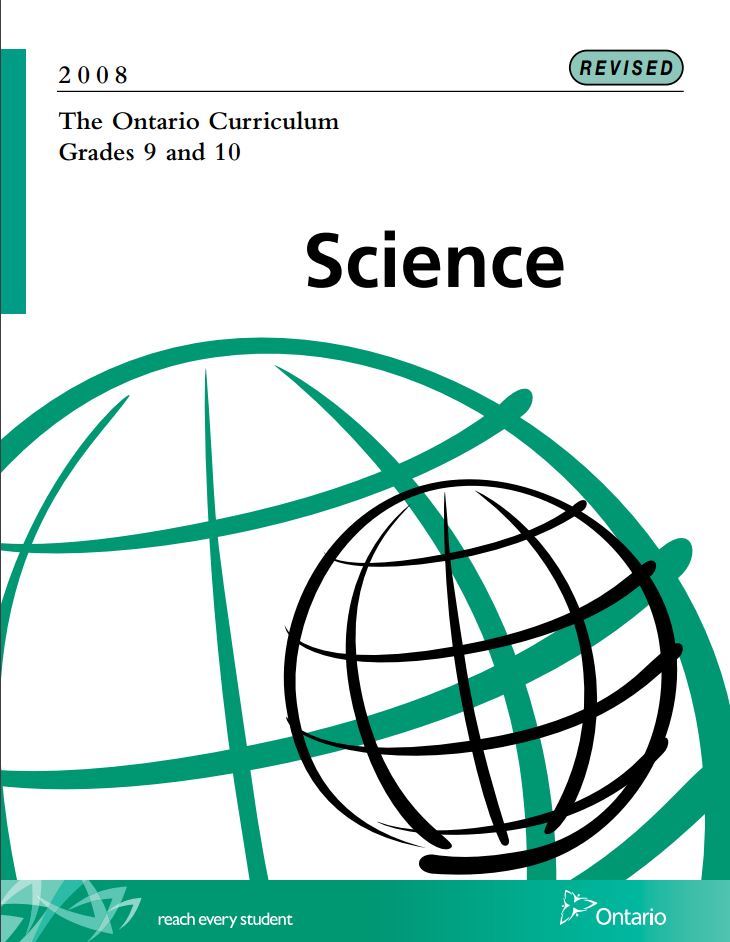Grade 9 Science
Overview of Grade 9 Science
Grade 9 Science in Ontario
Grade 9 Science helps students build their understanding of biology, chemistry, physics, and Earth and space science, connecting science to technology, society, and the environment. Throughout the course, students will enhance their STEM skills by conducting scientific research, experiments, and engineering designs to explore concepts and apply their knowledge to real-life situations. They will further develop transferable skills as they strive to become scientifically literate global citizens.
What is Grade 9 Science?
Grade 9 Science in Ontario is part of the de-streamed curriculum, meaning all students take the same course, regardless of their future academic pathway. The course is designed to develop students’ understanding of scientific concepts, critical thinking abilities, and practical application of knowledge through experiments and inquiry-based learning.
The Grade 9 Science curriculum is divided into four major strands:
-
Biology – Sustainable Ecosystems
- Understanding ecosystems and their interactions
- Human impact on the environment
- Biodiversity and sustainability
-
Chemistry – Atoms, Elements, and Compounds
- The periodic table and properties of elements
- Chemical reactions and compounds
- Safe handling of chemicals
- Understanding ions, ionic bonds, and polyatomic ions
-
Physics – The Characteristics of Electricity
- Static and current electricity
- Circuits, voltage, resistance, and power
- Renewable vs. non-renewable energy sources
-
Earth and Space Science – The Study of the Universe
- The structure and components of the universe
- The life cycle of stars
- Theories about the origin of the universe
The Goals of Grade 9 Science
The Grade 9 Science course aims for students to:
- Develop skills and connections essential for scientific investigation.
- Connect science to our evolving world, encompassing technology, society, the economy, and the environment.
- Investigate and comprehend scientific concepts.
Upon commencing Grade 9 Science, students, for the first time, delve into the details and intricacies presented in each of the four physical sciences: Chemistry, Biology, Physics, and Earth & Space Science.
Challenges Students Face in Grade 9 Science
Many students find Grade 9 Science challenging due to its broad range of topics and the shift to a more inquiry-based learning approach. Common difficulties include:
- Understanding abstract concepts such as atomic structure and electric circuits
- Applying theoretical knowledge to practical experiments
- Developing strong scientific writing and communication skills
At the end of the Grade 9 Chemistry unit, students are expected to answer many nuanced questions, some of which include: What is an ion? What is an ionic bond? What is an ionic compound? What is ionization? What is a polyatomic ion? Although there are similarities between these terms, it is their major conceptual differences that are often tested. Yet, students tend to unconsciously interchange these terms. Why? Students often have difficulty categorizing newly learned concepts in High School Science due to small subtleties in terminology (such as those mentioned), turning otherwise fair concepts into difficult ones.
York Region tutors recognize and appreciate that such nuances in all four sciences can be an obstacle to student learning and work to keep each student’s perspective at the heart of their teaching as they work one-on-one through homework, assignments, and laboratories.
How Your Region Tutoring Can Help
At our tutoring center, we offer comprehensive support for Grade 9 Science, ensuring students build confidence and excel in the subject. Our tutoring services include:
- One-on-One Tutoring: Personalized sessions tailored to each student’s needs.
- Homework Assistance: Guided help to reinforce classroom learning.
- Test and Exam Preparation: Practice tests, review sessions, and study strategies.
Our expert tutors make science engaging by using interactive lessons, real-world applications, and hands-on experiments whenever possible. We also provide support for students transitioning to Grade 10 Science, ensuring they are well-prepared for the next academic challenge.
Final Thoughts
Grade 9 Science is an exciting and essential subject that helps students develop a deeper understanding of the world around them. With the right support and resources, students can build a strong foundation for success in Grade 10 Science and beyond. If your child needs extra help in science, our tutoring center is here to provide expert guidance and encouragement.
Contact us today to learn more about our Grade 9 Science tutoring programs and help your child achieve academic excellence!
Sources: https://www.dcp.edu.gov.on.ca/en/curriculum/secondary-science/courses/snc1w/home
Grade 9 Science (Academic) Ontario Curriculum Breakdown

- Ecosystems are dynamic and have the ability to respond to change, within limits, while maintaining their ecological balance.
- People have the responsibility to regulate their impact on the sustainability of ecosystems in order to preserve them for future generations.
- Elements and compounds have specific physical and chemical properties that determine their practical uses.
- The use of elements and compounds has both positive and negative effects on society and the environment.
- Different types of celestial objects in the solar system and universe have distinct properties that can be investigated and quantified.
- People use observational evidence of the properties of the solar system and the universe to develop theories to explain their formation and evolution.
- Space exploration has generated valuable knowledge but at enormous cost.
- Electricity is a form of energy produced from a variety of non-renewable and renewable sources.
- The production and consumption of electrical energy has social, economic, and environmental implications.
- Static and current electricity have distinct properties that determine how they are used.
York Region Tutoring Provides
If a student is approaching a forthcoming test, we can provide them with a previous test to be completed at home before their upcoming session. Subsequently, during their next class, just before the exam, they can review the test with their tutor. These tests are exclusively sourced from high schools in York Region and other areas in Ontario, serving as the definitive benchmark for students to assess their readiness.
York Region Tutors and are equipped with drawing tablets making collaboration simple, efficient and effective. We also offer drawing tablets at a discount for purchase to students who really take to the functionality of the product.
At the parents’ request, following each tutoring session, our tutors can assign homework tailored to address weaknesses and reinforce strengths in students. Additionally, we incorporate homework questions directly extracted from previous tests and quizzes administered by YRDSB school teachers, allowing students to familiarize themselves with potential test questions.

